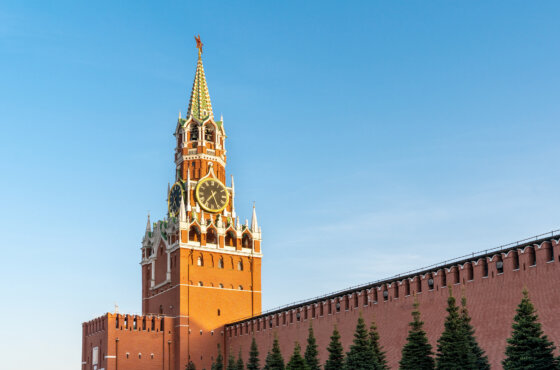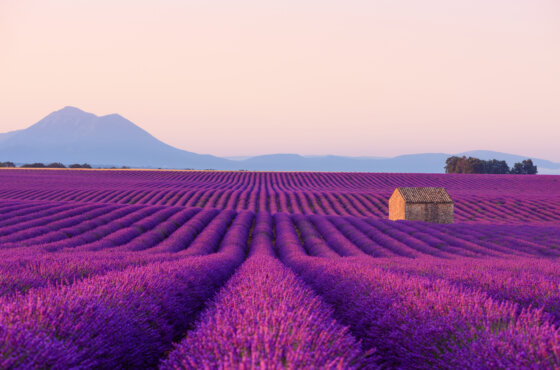An American scientist with Russian roots won the Nobel Prize in Chemistry: what is known about him
The names of the Nobel Prize laureates in chemistry were announced in Stockholm. They were US scientists Mungi Bavendi and Louis Bruce, as well as an American scientist with Russian roots, Alexey Ekimov. The prize was awarded “for the development of a method for creating quantum dots,” reports Meduza.

Photo: IStock
The Nobel Committee report notes that independently of each other, Ekimov and Bruce managed to create quantum dots, while Bavendi revolutionized chemical production.
Bawendi said he was "very surprised, sleepy, shocked by the unexpected news and very honored" by the award. Bruce said it was so unexpected that he ignored the first half-dozen phone calls he received from people trying to tell him the news.
The quantum dot technology that enables QLED high-definition TVs sold by Samsung, Sony or TCL has its roots in Ekimov's work in the early 1980s.
“I never imagined that it would be possible to produce these things on such a large commercial scale,” Bawendi said at a press conference at the Massachusetts Institute of Technology (MIT), where he is a professor.
Ekimov was the pioneer who discovered that the color of glass changes depending on the size of the copper chloride molecules it contains and that subatomic forces are at work.
Speaking to Reuters by phone, Ekimov, 78, marveled at the latest technology in flat-panel displays, something he had never imagined when he worked in the 1980s. “Remember what TV was like back then!” - he said, laughing.
Quantum dots are nanoparticles that are so small that their behavior exhibits quantum effects. Their most famous application today is in electronics, where quantum dots can replace the traditional luminous substance (phosphor) in screens. Biochemists and doctors use them to map biological tissues. Using quantum dots, surgeons can locally “illuminate” a tumor in the patient’s body for a more accurate and safe operation.
BREAKING NEWS
The Royal Swedish Academy of Sciences has decided to award the 2023 #NobelPrize in Chemistry to Moungi G. Bawendi, Louis E. Brus and Alexei I. Ekimov "for the discovery and synthesis of quantum dots." pic.twitter.com/qJCXc72Dj8- The Nobel Prize (@NobelPrize) October 4, 2023
To give themselves the size of a nanodot, the Nobel Committee made this comparison. If you enlarge a nanodot to the size of a soccer ball, then the ball itself, at this new scale, is approximately the size of our planet.
Early announcement of laureates
The names of the laureates hit the press a few hours before the official announcement of the Nobel Committee: several Swedish media outlets published an email mistakenly sent by the Royal Swedish Academy of Sciences, reports with the BBC.
Soon after, Academy of Sciences officials told Reuters that no decision had yet been made on this year's chemistry prize.
“This is a mistake by the Royal Swedish Academy of Sciences. Our meeting starts at 09:30 CET (07:30 GMT), so no decision has been made yet. The winners have not been determined,” said Joan Aquist, chair of the Nobel Chemistry Committee.
The list included Mungi Bavendi, Louis Bruce and Alexey Ekimov.
On the subject: Nobel Prize in Medicine awarded to scientists who created a vaccine for COVID-19
There was no press release on the academy’s website either.
However, after a closed vote of members of the Royal Academy of Sciences, the secretary general of the committee told journalists the names of the same three people: Bavendi, Bruce and Ekimov.
Leaks about the Nobel Prize are rare: the various awarding academies make every effort to keep the names of the winners secret until the announcement, and the list of nominees is kept secret for 50 years after the winner is announced.
Ekimov studied in the Soviet Union, worked in the USA
Ekimov was born on February 28, 1945. In 1967 he graduated from the Faculty of Physics of Leningrad State University. In 1974 he defended his dissertation for the degree of candidate of physical and mathematical sciences. The topic of the candidate's thesis is “Optical orientation of carrier spins in semiconductors.” In 1989 he became a Doctor of Physical and Mathematical Sciences, reports Slow.
Like the article? Support ForumDaily!?
The topic of the doctoral dissertation is “Quantum dimensional phenomena in semiconductor microcrystals.”
Since the late 1990s, Akimov has been working in the West. He has taught at French, Japanese and British universities. Works at the American company Nanocrystals Technology as a chief scientific officer.
In 2006, the scientist received the Wood Prize (together with L. Bruce and Al-Dr. L. Efros for “the discovery of nanocrystalline quantum dots and pioneering studies of their electronic and optical properties”).
You may be interested in: top New York news, stories of our immigrants, and helpful tips about life in the Big Apple - read all this on ForumDaily New York.
Read also on ForumDaily:
iPhone 15 overheats due to the most common applications: Apple is looking for ways to fix it
False hope: how social media ads for immigration services are misleading
Subscribe to ForumDaily on Google NewsDo you want more important and interesting news about life in the USA and immigration to America? — support us donate! Also subscribe to our page Facebook. Select the “Priority in display” option and read us first. Also, don't forget to subscribe to our РєР ° РЅР ° Р »РІ Telegram and Instagram- there is a lot of interesting things there. And join thousands of readers ForumDaily New York — there you will find a lot of interesting and positive information about life in the metropolis.











